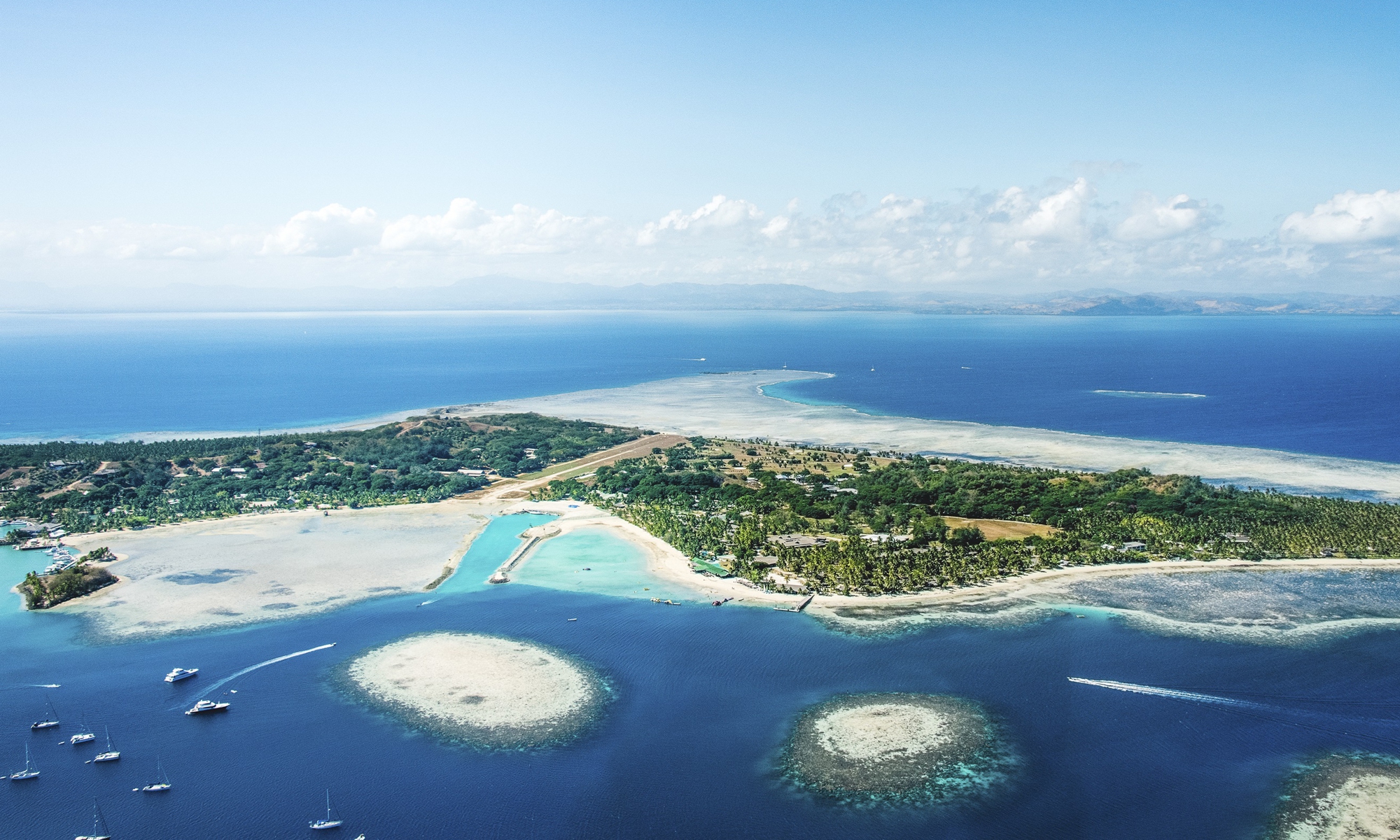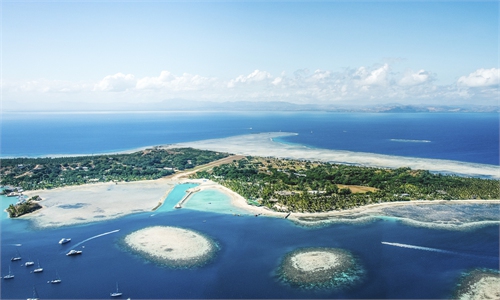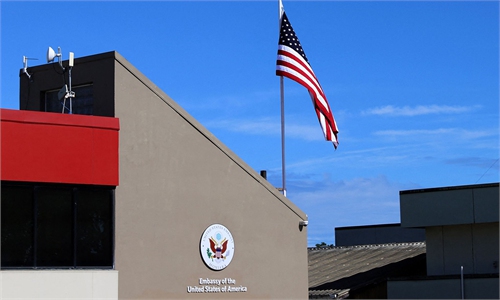Attempting to drive a wedge between China and Fiji, US practices ‘Band-Aids’ diplomacy

The coastal scene of Fiji Photo: VCG
Seeing China opening its arms with hospitality to countries worldwide, and as even ties between China and Australia are thawing, the US is unhappy. Voice of America (VOA), one of America's oldest propaganda machine, is trying to make some waves in the Pacific.
Aiming at Chinese Vice Foreign Minister Ma Zhaoxu's ongoing trip to Australia and Fiji, the VOA Chinese published an article, claiming a pro-US, pro-Australia, and anti-China front has taken shape in the South Pacific. The media outlet tries so hard to drive a wedge between China and Fiji, underlining that Fiji is preparing to promote military and diplomatic ties with Australia, while suspending a police agreement with China.
It is interesting to see the VOA stressing an anti-China front in the South Pacific when carefully skirting around the recent small but steady progress made in China-Australia relations.
The media also dodged to mention one thing - the hidden US hand behind Fiji's shift in attitude toward China. Experts believe that during former Fijian prime minister Josaia Voreqe Bainimarama's 16 years in office, he practically put the maximation of Fiji's national interests as a priority when dealing with other countries. The scale and scope of China-Fiji economic and trade cooperation, as well as Chinese tourists' enthusiasm for Fiji, have helped promote local economic development and employment. However, after the new prime minister took office, US pressure crept in.
But it is too early to tell the new administration's long-term strategy. What happens now is temporary, and they do not mean Fiji is prepared to confront China. We should give Fiji more time to understand China, Yu Lei, chief research fellow at the Research Center for Pacific Island Countries of Liaocheng University, told the Global Times.
Ma's visit itself is a proof that China is willing to keep communicating with Fiji about divergences and to resolve them based on mutual respect, experts said.
For the US, it wants to create an anti-China front in the South Pacific. But for Pacific countries, US' demand goes beyond picking a side between Beijing and Washington - it's more about choosing to be a vassal state or to pursue independent development.
Most South Pacific countries do not want to be anybody's tool. They want pragmatic diplomacy based on their own interests. That's why Solomon Islands Prime Minister Manasseh Sogavare asserted in September 2022 that the right to establish diplomatic relations between sovereign nations is a universal principle shared by all members of the UN. He stressed that the Solomon Islands has no enemies, only friends, and "our struggle is to develop our country."
Unfortunately, the US-led West does not really care about the development of South Pacific countries' or local people's well-being. All it has being doing is politicizing, instrumentalizing and weaponizing the region. And the so-called US aid to them is mostly political output, like helping implant a Western-style democratic system. In contrast, cooperation with China is another story. It is about new hospitals, anti-pandemic supplies, power plants, roads and bridges; in that aspect the US has little to offer, Chen Hong, director of the Australian Studies Centre at East China Normal University, told the Global Times.
In order to rope South Pacific countries to its own camp, the US has also been busy demonizing China and distorting ties between China and regional countries.
But the deliberate slander of China cannot stop the big trend. The trend is that even Australian state premiers are lining up to visit China for cooperation, and Australian Prime Minister Anthony Albanese has also hinted he would come if invited.
Chen said that the US strategy in the South Pacific is now like putting on "Band-Aids" where needed. The word "Band-Aid" is metaphorically used to indicate the provision of highly visible but only preliminary management of a minor injury, possibly not serious enough to require further follow up or attention. For example, it reopened its Solomon Islands embassy in a move widely seen as shoring up influence in the Pacific to counter China.
Pacific Island countries have long realized that the US would not cast eyes on them if it's not because of their cooperation with China.
This Band-Aids diplomacy may temporarily work, but it's surely unsustainable. And the more the US propaganda machine tries to drive a wedge between China and South Pacific countries, the more it mirrors the US is at its wits' end in drawing them over, Chen said.


